-expands into candles and soap
Devon Gilead, 32, of Islington, East Bank Berbice learnt the art of beekeeping on his own and continues to thrive due to his passion and his determination to stay in the business.
Not wanting to limit his skills to extracting honey alone, Devon got down to researching on the internet to find out how to create wax candles and soaps. He also makes “natural honey-roasted peanuts.”
He also obtained knowledge about bees and honey from an “ancient beekeeping book.”
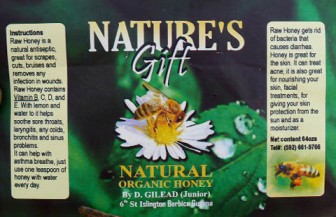
He markets the honey locally but many persons would purchase the product as well as the candles to take overseas. He is in the process of making soap in commercial quantities.
Taking this newspaper on a tour to his apiary at the seashore in the village, Devon said the bees tap nectar from flowers from the mangroves and other trees around. He is aware that “mangrove and the bees depend on each other.”
He had just a few hives at that spot and he showed this newspaper a brown box from where he extracts three gallons of honey. The other hives were at another apiary in the Ithaca backlands on the Western side of the river.
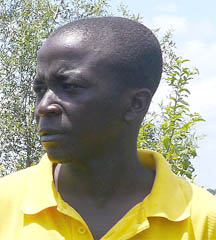
He would have had over 90 hives but he suffered a setback two months ago when 50 of the boxes were destroyed by flooding caused by the spring tide. His losses amounted to $4M.
With just over 40 hives remaining, Devon barely managed to harvest one barrel of honey for this season instead of three. But he would not be daunted and has already started to gather more bees.
Back at his home, he opened a wooden box containing some bees but told this newspaper not to be afraid since the insects were “stingless.” He said they pollinate acidic fruits such as oranges, guavas and cherries.
His interest in bees started over 15 years ago while accompanying a resident to destroy suspected Africanized bees in buildings.
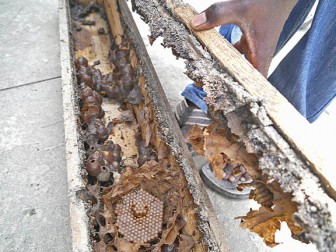
After a few trips to rid the buildings of the bees and bring relief to the occupants, he realized that the insects were actually very useful.
He thought that instead of destroying them he could capture them to make a living.
Quite excited about the idea, he sought the resident’s advice in making the hives. But he was disappointed that he was not reaping the amount of honey as expected because the hives were not built correctly.
He approached other beekeepers to find out how to do it but they refused to share their skills. For five years he struggled to find out the correct way of building the hives but was still not prepared to give up.
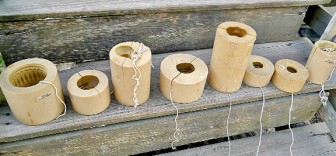
He kept researching on the internet until he eventually got it right. He continues to make the hives and is able to save almost twice the cost.
He is also aiming to get bigger in the business.
Moulds
He has also created a “solar wax melter” using a wooden box with a glass frame. After the wax is melted in the sun he pours it into the moulds creating various shapes of candles.
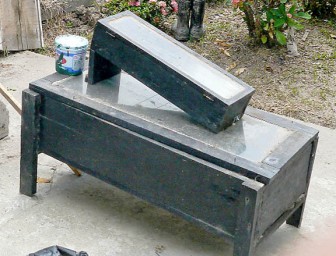
The wax draws the natural colours, such as pink and purple from the flowers that the bees pollinate, giving them an attractive look.
Although he uses moulds to shape the candles, he still has to “do some handwork to blend the colours and fix in the wick.”
To create the “natural organic soaps,” he adds other by-products to the wax including the pollen and the propolis.
The soap is used mostly as a face wash. He received positive feedback based on a survey he conducted after distributing samples of the soap to residents.
The respondents also promised to continue using the product and to recommend it to their friends.
The beeswax is good for dry skin, wrinkles and acnes and persons can use it as a cleanser without worrying about side effects.
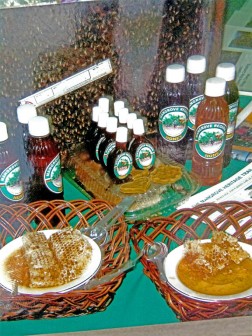
On Devon’s labels for his honey, it is stated that “raw honey is a natural antiseptic, great for scrapes, cuts, bruises and removes any infections in wound.”
When mixed with water, it helps to “soothe sore throat, laryngitis, any colds, bronchitis, and sinus problems.”
“The bees would go out as far as five miles to look for nectar and depending on the type of flowers the texture of the honey also changes.” He said too that the “honey extracted from the Africanized bees is thicker.”
Persons would contact Devon to remove bees from their homes or from public places on their own or after being referred to him by the Ministry of Agriculture.
He would “go as far as Skeldon” and has found it an easy task, especially since it means adding more bees to his colony.
He has also showcased his products at exhibitions and would do demonstrations and lectures on beekeeping at schools.







